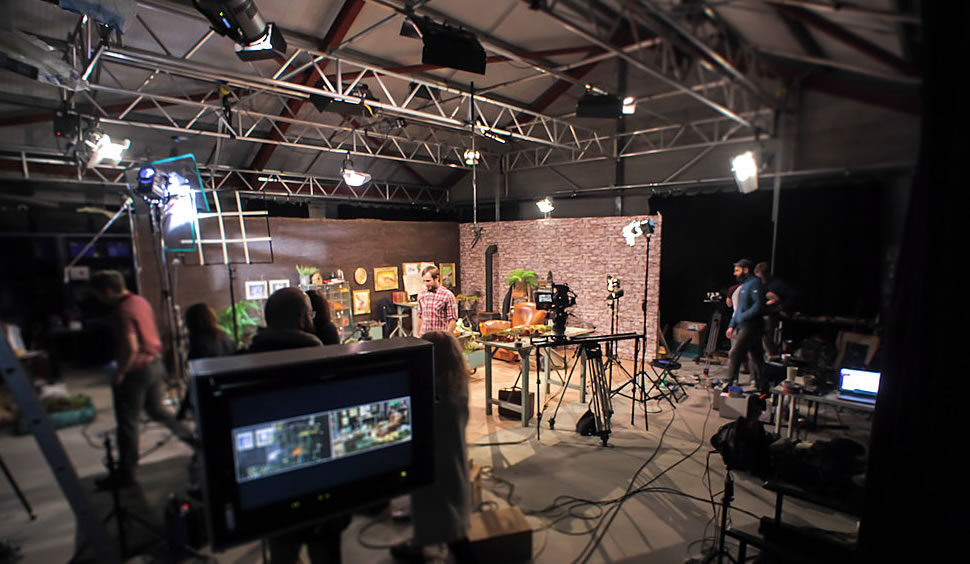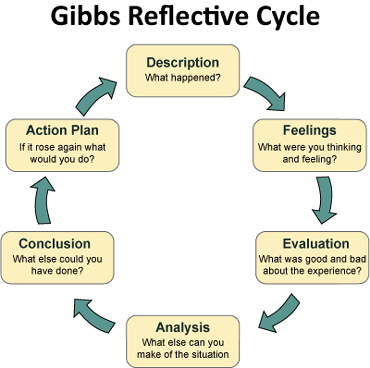Entering a work placement for the first time can already seem pretty daunting, especially if you have a doubtful mindset to begin with. Recently I had started my work-based learning at Acorn Film & Video, which is an equipment rental facility based in Belfast. Securing this placement wasn’t necessarily difficult, as I’m quite friendly with the Managing Director’s daughter, in which he took me on without any hesitation or having to ask for my CV. However, whilst this was a rather easy and laid-back approach to securing experience, starting the placement itself proved to be somewhat nerve-racking as it was exciting.

https://www.acorntv.com/
It took a short while to actually start my placement at Acorn after Roger (the Managing Director) initially accepted me. This was mainly due to the fact that Roger kindly offered to email an old contact of his, asking if I could work as an assistant in the art department for an upcoming TV production (as I had made it known that Production Design is the area of film I am most interested in). However, due to a lack of response, and ultimately unavailability, we both decided that I would spend my time at Acorn. This would mean I would gain some experience with various cameras, tripods and lights, as well as an insight to the company’s process of renting out equipment. Although the Production Design experience would have been appealing, part of me was actually relieved that it didn’t work out, as in my head I would be working in a more familiar environment and would arguably have to deal with lesser consequences, if I were to ‘mess up.’
Nevertheless, the nerves were still lingering. I felt I had little to no experience or knowledge that the staff at Acorn would potentially expect. I have had basic experience with light stands, and in terms of camera or sound I have essentially only pressed the record button and nothing far more complex than that. Therefore, I was worried I would have to catch on very quickly in terms of learning about the technicalities of film equipment, and aimed to keep an attentive attitude at all times as to not get confused, or piss anyone off. To best reflect my introductory experience at Acorn, I have decided to implement Gibbs Reflective Cycle, as it consists of six separate stages which enables a step-by-step analysis relating to an event, and encourages critical thinking if it were to happen again.
Gibb’s approach is characteristic of all the strategies, or frameworks, for reflection that have been developed over the succeeding years.
Jasper, 2013: 85

https://www.structural-learning.com/post/gibbs-reflective-cycle
Description
On the day of my induction, I was given a brief tour throughout the building and a general sense of Acorn’s day-to-day activities. Roger’s son Leo gave me a tour showing each room and where they stored individual groups of equipment, to which I followed him like a shadow and tried my absolute hardest to remember everything he said. After a few more exchanges with the staff and a lovely cup of tea, I was on my way. Simple enough, right?
A week later, I returned to Acorn for my second day. My cooperation with the staff started to become more notable as I was tasked with more chores, such as fetching a tripod or taking photos on the company’s personal iPhone. Gerard, who is the head of hire at Acorn, was working in the main office and had asked me to grab one of the camera batteries located in the film studio.
“Of course!” I said confidently before strolling into the studio.
“Uh oh” I soon thought, as I couldn’t find the battery for the life of me.
I searched up, down and everywhere in between trying to locate this specific battery. Gerard showed me what it had looked like before he sent me away, so I knew what I was searching for and was determined to eventually find it. However that would never happen, as roughly 10 minutes later Gerard came through the doors to see if I was all right. After I explained I was having trouble finding what he needed, he walked over to the table of batteries and pulled out the drawer which I had forgotten was hidden beneath the tabletop.
Alas, battery found.

Feelings
Needless to say I immediately felt embarrassed and apologised to Gerard. Although this wasn’t the most devastating event, I felt as though I had let him down by disturbing his flow and keeping him behind on his work. I was already feeling anxious throughout the day as I was surrounded by people who were very skilled and experienced in film and TV. At times I felt very out of place from hearing completely new terminology or being introduced to massive cameras that I had never seen the likes of.
Therefore, I wanted to find the battery without asking for help so I would seem capable of such simple duties. Like I had stated previously, I felt insecure at the fact I hadn’t much technical experience to offer, so part of me didn’t want to prove that any further by asking for assistance. Even though my intentions were to not distract any of the staff, I essentially ended up doing that anyway by prolonging such an easy task and, as a result, I was rather annoyed at myself and kept overthinking my actions the rest of the day.

Evaluation
Even though I had failed to retrieve the battery for Gerard, I believe my efforts of independence and determination remains a positive note. By showing these characteristics perhaps would have proved to Roger and the staff that I am willing and can work in a productive manner.
Thinking laterally, being humble, hard-working, determined and willing could be what gives you that all-important first break into the industry.
Gregory, Healy, Mazierska, 2007: 115
All things considered however, I still took a rather long time for a task that arguably could’ve been completed in less than a minute. This situation didn’t work in my favour as it may have suggested that I am disorganised or wasn’t paying attention during Leo’s tour. Perhaps my actions could have implied that my work ethic is not up to standard and therefore, created the idea that I’m not an ideal employee.
Analysis
Looking back, the situation could have been better and went more smoothly. Since I disappeared for 10 minutes desperately trying to find the battery, Gerard was forced to come find and save me, which therefore caused a slight delay in his work. This definitely shouldn’t have happened, and I couldn’t help but think about everything I did wrong. I obviously wasn’t looking hard enough when searching for the battery, and I didn’t let anyone know that I was having trouble which ultimately interrupted the work of the company.
If it wasn’t for Gerard, I could have been in the studio for an even greater amount of time, relentlessly looking for something I’d most likely never find. He essentially did the job for me, and perhaps if I had a better understanding of the facility’s layout by taking myself through the studio a few more times, there wouldn’t have been any mishap.
Conclusion
Looking back, the one thing I definitely could have done differently in this situation was to simply ask for help!
At the time this was such a scary thing to do, as I thought by needing assistance would make me seem bothersome or somewhat naive, which as a result forced me to be remain rather timid. However, by actually using my voice to confidently say that I was having trouble, perhaps, might have avoided an awkward situation altogether.
It is a natural drive to want to avoid these stressful feelings, so we reflect on what has happened in order to learn from our experience and change our behaviour.
Jasper, 2013: 15
Instead of staying quiet and waiting for the battery to eventually reveal itself, I could have used this opportunity to speak to someone and potentially build a rapport with some of the staff. This also would have decreased the amount of time I was looking for the battery and, therefore, prevented any further disruption to Gerard’s work.

Action Plan
To avoid something like this happening again in the future, I would firstly try to improve my knowledge of the facility’s storage system. I have learned that although I knew the layout of the film studio in a general sense, I wasn’t aware of the locations of specific items. For example, if I were to write certain things down during tours such as Leo’s, then hopefully I would have a better vision of where each piece of equipment is located.
Overall, the main outcome that I have taken away from this experience is that it is important to be more socially outgoing and attempt to ask questions when you’re stuck. By making an effort to go outside of your comfort zone and overcoming doubtful thoughts, you may find yourself with an improved mindset and become more efficient in the workplace. In conclusion, entering a placement for the first time may be discouraging, but I’ve learned that it is a great network to gain better social skills and adapt your critical thinking.

References
Jasper, M (2013). Beginning Reflective Practice. 2nd Ed. Melbourne & London: Cengage Learning.
Gregory, G., Healy, R., Mazierska, E (2007). Careers in Media and Film: The Essential Guide. Los Angeles: SAGE Publications.